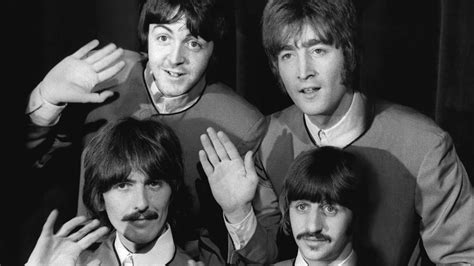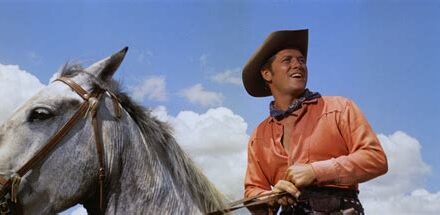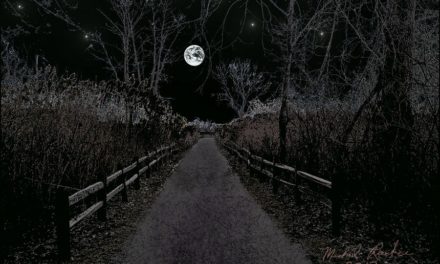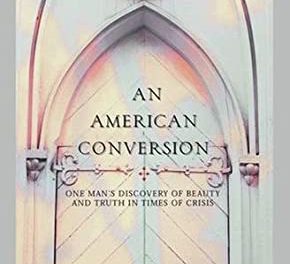Readers of The Christian Review may recall that I have publicly denounced rock ’n’ roll as second-rate music; no doubt some took offense at the opinion. And, make no mistake about it; I’m not about to recant.
But although I stand proudly, like a lone Christian in a nation of heathens, like a lover of Rembrandt in a gallery finger paintings, amid an aural world where rock is king, I will confess that I’m willing to make a few small concessions to the regnant fashion, to the music that was, is, and, apparently, ever shall be.
I don’t have Sirius XM radio on my car, but my wife does, and among its myriad stations is one called “The Beatles Channel.” We don’t tune in to it very often, but—there’s no denying it—on the rare occasions that we do, it stays dialed in for a few days. As far as I can make out, every once and awhile, famous men and women from the music world are invited to choose their favorite (or, as the program rather predictably has it “fab”) four Beatles songs. And, indeed, some interesting characters accept the challenge: Peter Asher, Steve Earle, Bare Naked Ladies among them. And I listen with interest.
Why shouldn’t I? I remember well when The Beatles hit our shores: the songs, the wigs, the screaming fans on TV, and even fans (actually my sixth-grade classmates) screaming in my face for resisting the inevitable tide. You don’t forget things like that.
But I also know that even then when I heard “I Want To Hold Your Hand, I had the feeling I was listening to something I could not resist—not entirely. And so it proved. A year or so later I was not a Beatles but a Dave Clark Five fan, but no matter: the Rubicon that I had forbidden myself to cross was behind me. And in the summer and fall of 1965, I heard my share of The Beatles and soon owned not a few albums.
So I too could choose my “fab” four Beatles songs (and I’ll mention them later), but what interested me on the Beatles Channel was a song that kept charting on guests’ lists: “Something.” You know the song. George Harrison wrote it, sang it, and watched it go to number one in 1969 even though it was already on their Abbey Road album, which needless to say was a chart-topper as well. No small feat! Judging from the comments about it, plenty of people find it lyrically unforgettable and musically complex.
I find it neither. Yes, you knew I was going to spoil this party, but hear me out—or rather listen to “Something.” Really listen. First, some of the lyrics:
Something in the way she moves
Attracts me like no other lover.
Something in the way she woos me.
I don’t want to leave her now.
You know I believe and how.
One could do worse—and I’m not going to claim I could do better. But are these words remarkable, the stuff of greatness? Would any but a gaggle of aging teenyboppers detect immortality or genius in them?
The first two lines are not bad, but line three is a virtual repetition of words that didn’t need repeating. A good ballad will use repetition with some license, but a lyric that does so betrays a lack of imagination and verbal facility.
“Something,” far from being lyrical in the classic sense or even in the grand pop sense, is ploddingly informational. We know more of what the singer feels about his “lover” with each passing line, but I ask you, are you moved by it? The words of the bridge (“You’re asking me will my love grow, / I don’t know” etc.) are pedestrian, but I’ll say no more about that.
Perhaps the worst feature of all in the song is Harrison’s inability to finish each main stanza lyrically. “You know I believe and how” calls for additional words to round out the thought. For all I can tell, he couldn’t think of any. Instead, we get a rather lame melodic line plumbing the depths of a four-note span (C to Eb to C to Db to D to Eb).
If you want to know how weak a song it is, consider how others have tried to make up for its weaknesses. Sinatra (on TV) tried it once, and, like others (Tony Bennett gave it a go), found the butt end of line four of the main stanzas unsatisfactory.
Live, a singer without a Stratocaster has to just stand there while the orchestra fills in the melodic end of the line. What does one do? Sinatra hums the line Harrison played or later croons “I don’t plan to leave her now.” (See it here.) Old Blue Eyes can jazz it up for all he’s worth, but the song is too flat for the Mozart of pop phrasing to turn Harrison’s sow’s ear into a silk purse.
But, you know, I like “Something.” It succeeds not for its intrinsic merits but for George Harrison’s ability to make it convincing. And—here I’ll repeat myself—that’s no small feat, but it’s a tribute to him, not to his song. “Stardust” it ain’t. (For comparison’s sake, watch a much younger Sinatra sing Hoagy Carmichael’s timeless standard—if you want to hear a “great” pop tune, both lyrically and melodically.
What’s true of Harrison is true largely for the rest of The Beatles’ music. We love it, but the truth is, we love them. Would we really have wished Sinatra to sing “Something” or (although I’ll admit I’d love to see it for a laugh) “Strawberry Fields Forever”? Not likely. It’s The Beatles we want to hear.
Which raises the question: Did they write songs that others could sing as if Harrison or Lennon-McCartney had not composed or recorded them? I think so. What if Sinatra instead of wasting his time and aging voice on “Something” had tried his hand at “Eight Days A Week” or “Can’t Buy Me Love”? Wouldn’t those songs have worked for him or for Nat King Cole or Bing Crosby—the icons of my parents’ generation, true masters of pop phrasing? I believe they would have because those songs, among a few others, have the quality Duke Ellington regarded as the sine qua non of pop music: swing. As for love songs, perhaps McCartney’s “For No One” would have worked, albeit with a good arranger.
But, all told, it’s The Beatles themselves that stand the test of time; they transcend their material. So . . . what would my fab four songs have been? Hard decision, but I’d choose “You Can’t Do That,” “Ticket To Ride,” “We Can Work It Out,” and “Penny Lane.” Frank Sinatra need not apply.















“You know I believe in now”, “YOU know I believe in her”, “You know I believe you now”, “You know I believe in how,”…. Has anyone noticed how internet plays with lyrics and anyone who hears anything writes it down as if it were bona fide lyrics? John Lennon sings, “Yellow Banana Custard falling from a dead dog’s eye?” “Yellow Matta Custard,”, or my personal favorite as there is such a thing, “Yellow Manna Custard dripping from a dead dog’s eye,…” O my. Lyrics do matter. Thanks for the post. I think many Beatles songs resonate in a profound way. Here There and Everywhere is certainly one but there are so many.
First lesson in songwriting keep it simple few words as possible to get to the point. Stardust is way too wordy to be song lyrics as far as im concerned, i word say it makes a better poem. It cetainly doesnt make it any more sophisticated or genuis.